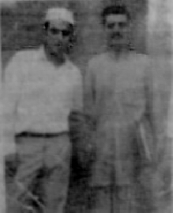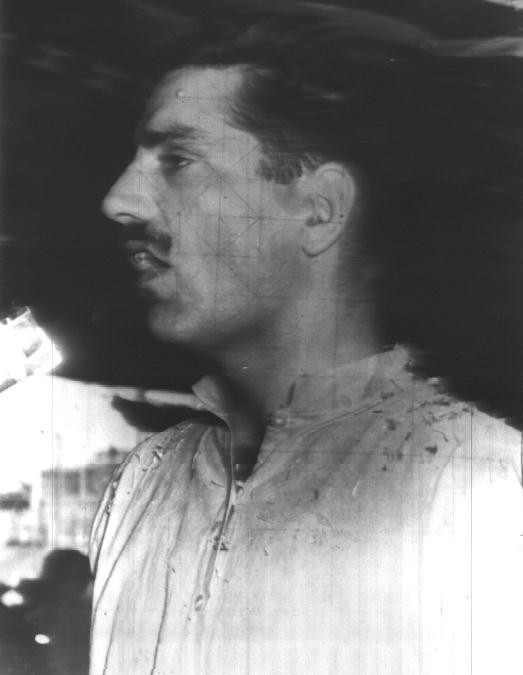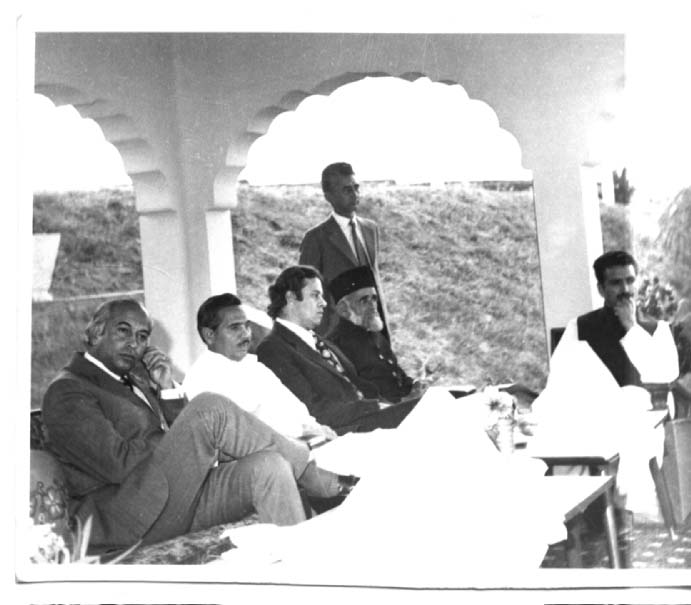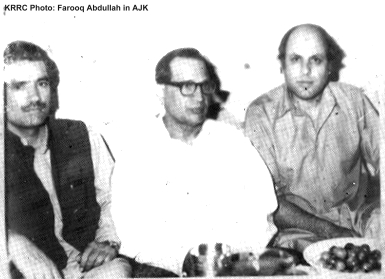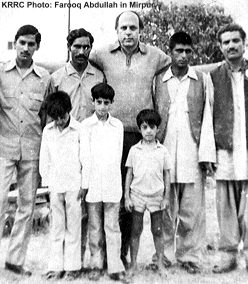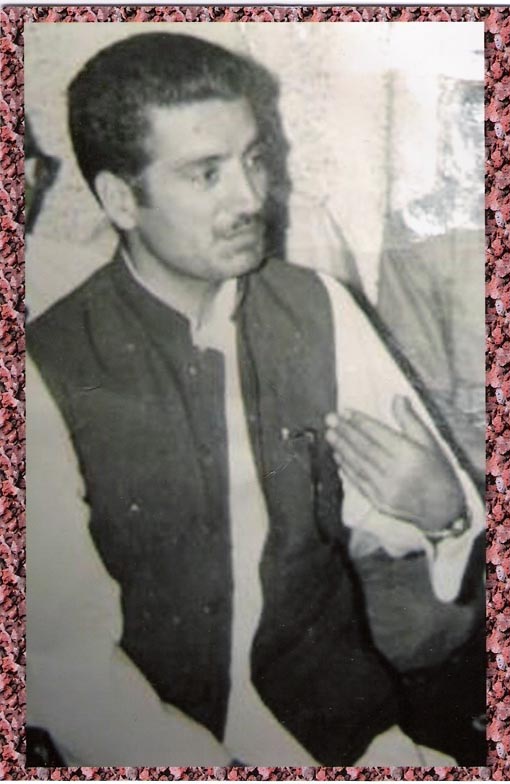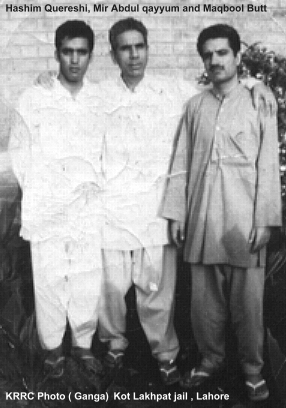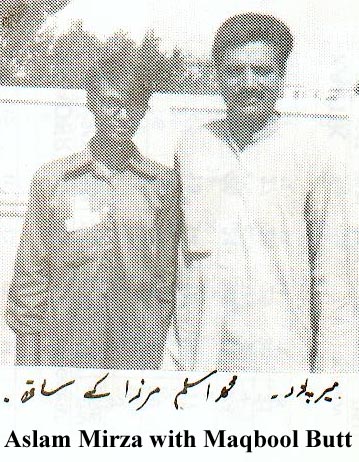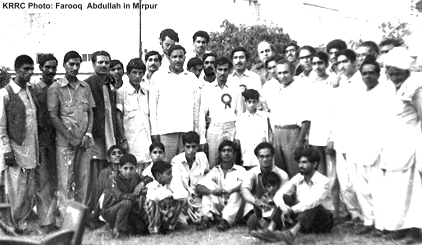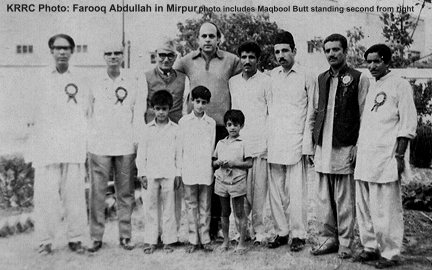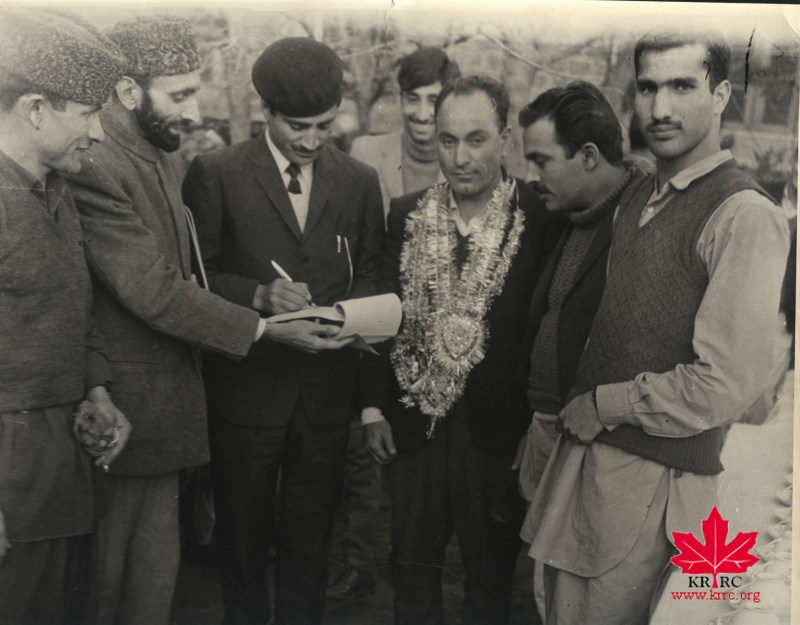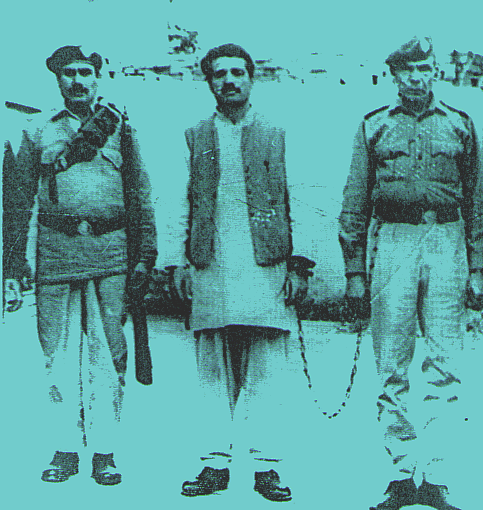February 11, 2000, marks the 16th anniversary of the
martyrdom of
Shaheed-e-Kashmir Maqbool Butt. He was
sent to the gallows in Tihar prison,
New Delhi, this day
in 1984. He was 48.
His brother the late Ghulam
Nabi Butt, who had left his
home in Trehgam (Kupwara) for New Delhi a day
earlier
to collect his deadbody and take it to his native place
for
burial, was arrested at Srinagar airport and the prison
authorities
refused to hand over the body to his defence
counsel, so it was buried within
the prison premises. The
purpose was to avoid the expected strong public
reaction
if his body had reached the valley.
Born in a lower-middle
class family in Indian-occupied
Kashmir, Maqbool Butt received his education
in
Baramulla and migrated to Pakistan in 1959. In addition
to working as a
part-time journalist in Peshawar, he
continued his studies, obtained a
masters degree in Urdu
and studied law as well. He joined the
freedom
movement in 1963 and in 1965 he was elected the
Publicity
Secretary of the pro-independence Jammu
Kashmir Plebiscite Front. His 21-year
long political
career, about two-thirds of which was spent behind bars
and
the rest facing the fury of traditional political
jugglers, was full of ups
and downs, some achievements
and many severe setbacks.
Like all
revolutionaries, Maqbool Butt was ill-treated by
his foes and friends alike.
Before being sent to the
gallows in Delhi, he had spent about 10 years
in
different prisons in India and Indian-held Kashmir,
dubbed as
Pakistan's agent. He was in jail for three
years in Pakistan as well, dubbed
as an Indian agent!
The truth is he was an agent only of the
national
aspirations of the Kashmiri people. During his
imprisonments, he
was subjected to grinding mental and
physical tortures. But he hardly ever
complained, not
even in the court.
While taking oath after election as
office-bearers of the
Jammu Kashmir Plebiscite Front, with a lump of
earth
from Indian-occupied side in our hands and standing near
Kashmir
border at Suchetgarh, Sialkot, Maqbool Butt and
about a dozen of our party
members including myself,
pledged that we would not hesitate even to
sacrifice our
lives for the cause of national emancipation. He is the
only
one so far who has honoured and fulfilled that
pledge. Also as a co-founder
of Jammu Kashmir National
Liberation Front (NLF) in August, 1965, Butt along
with
Mir Abdul Qayyum, GM Lone, Major Amanullah Khan and
myself, had vowed
not to hesitate to sacrifice his life to
achieve the objectives of that
organisation, ie, to obtain
for Kashmiris their right to shape their own
destiny as
sole masters of their motherland and he fulfilled that
pledge
too.
In 1966, Butt and half a dozen of his compatriots
crossed over to
Indian-occupied Kashmir to organise NLF
there and train Kashmiri youth for an
armed freedom
struggle. They remained in the valley for over three
months
and did basic work but while on their way back to
Azad Kashmir to report to
the organisation, an officer of
Indian intelligence tried to get them
arrested and
following a clash, the officer got killed at the hands
of
Aurangzeb, an enthusiastic youth from Gilgit and a
member of the group.
The Indian army laid siege to the
entire area and in a clash, Aurangzeb got
killed and
Maqbool Butt and his partymen arrested. After a
two-year long
trial, Maqbool Butt was sentenced to
death for 'killing the officer' and for
'working as an enemy
agent'. He escaped from the Srinagar jail in
December
1968 and, trekking peaks covered with four to six feet
snow for
over a week, crossed over to Azad Kashmir.
In 1976, he again crossed over
into the valley to
re-organise the movement, fully knowing that the
death
sentence was still effective. Unfortunately, he was
arrested again
and sent to New Delhi prison where he
remained for eight long years before
being sent to the
gallows in 1984.
During 23 years of close
ideological association with
Maqbool Butt, I found in him a man of extremely
strong
will, clean and straight-forward thinking. He was a
farsighted
person with exemplary patience and
perseverance. Patriotism formed the core
of his political
character. Selflessness was the spirit of his
personality,
and honesty defined his character.
On Maqbool Butt's 17th
anniversary, we must review
where the freedom movement in Kashmir is heading.
The
United Nations Organisation was established in 1945. At
the time of
its establishment its membership was 51.
Today, there are 188 member
countries. As many as 137
new nations have become free states during the last
55
years. But Kashmir, whose freedom struggle started in
1931--fourteen
years before the UN came into being--has
yet to attain its rightful political
status. There are many
reasons for this unfortunate state of affairs. But
the
basic problem is that the Kashmiri people have not found
the kind of
leadership subjugated nations determined to
gain independence from the
clutches of an oppressive
state require. Maqbool Butt's supreme sacrifice
leads the
way. Only a leadership working with this spirit of
selflessness
can pull Kashmir out of its present quagmire
and achieve the goal of national
emancipation.
The writer is chairman of the Jammu Kashmir
Liberation
Front


